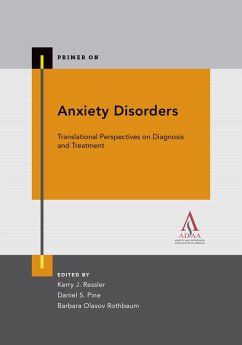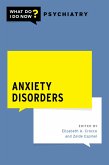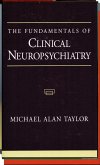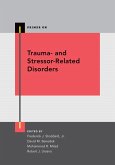Anxiety affects millions, manifesting as generalized anxiety disorder (GAD), obsessive compulsive disorder, panic disorder, phobias, post-traumatic-stress disorder (PTSD), and social anxiety disorder. Not only are anxiety disorders common, but they are also crippling, frequently co-occurring and predict high risk for depressive disorders. Shared mechanisms may explain the overlapping features of many anxiety disorders and account for associations with other highly-impairing conditions, such as major depression and substance use. Beyond risk for specific disorders, anxiety also predicts a number of other adverse outcomes, including suicidal behavior, medical problems, social, and economic difficulties. Conversely, disorder-specific mechanisms may also exist and explain the unique features of each syndrome. Thus, it is important to understand both shared and specific aspects of anxiety. The Primer on
Anxiety Disorders provides early-stage practitioners and trainees, as well as seasoned clinicians and researchers, with need-to-know knowledge on diagnosis and treatment. Clinical cases are used throughout the book to enhance understanding of and illustrate specific disorders, comorbid conditions and clinical issues. To facilitate an integrative approach, content allows clinicians to understand patient characteristics and tailor interventions. The integrated approach of each chapter includes recent research on genetics and neuroscience to understand the mechanisms of anxiety disorders, focusing on the forthcoming new nosology in DSM-5. Chapters further integrate innovative advances in clinical research providing research on a range of discoveries regarding biomarkers of illness, biological predictors of treatments and the effect of treatment on neurocircuitry.
Dieser Download kann aus rechtlichen Gründen nur mit Rechnungsadresse in A, B, BG, CY, CZ, D, DK, EW, E, FIN, F, GR, HR, H, IRL, I, LT, L, LR, M, NL, PL, P, R, S, SLO, SK ausgeliefert werden.









